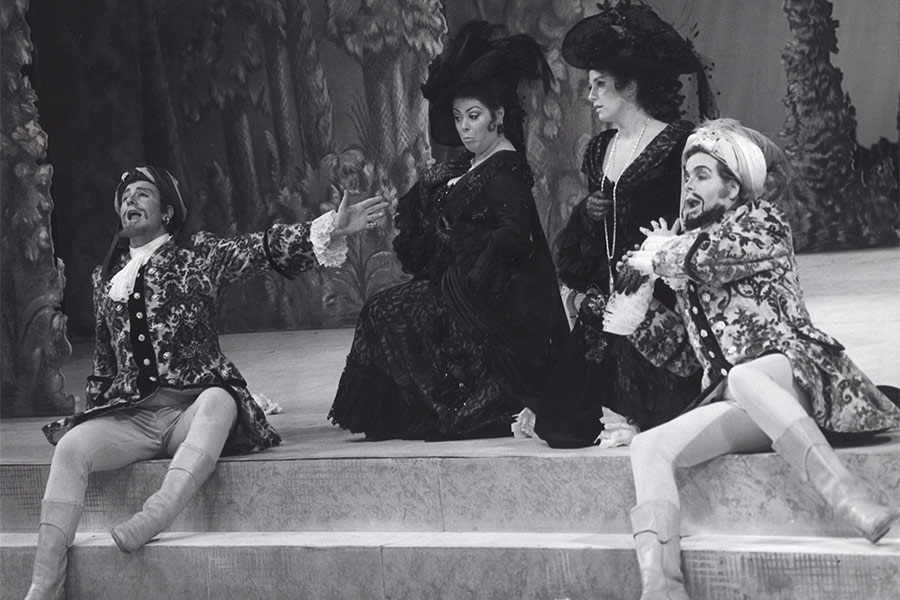October 23, 2025
Get to know: Mozart's "Così fan tutte"
Così fan tutte, or "Thus Do All [Women]," is a two-act Italian opera composed by Wolfgang Amadeus Mozart with a libretto by Lorenzo Da Ponte — the third and final collaboration between the two, following Le nozze di Figaro and Don Giovanni. Premiered in Vienna in 1790, the opera is a satirical romantic comedy that explores themes of love, fidelity, and human behavior.
The story centers around two young officers, Ferrando and Guglielmo, who are engaged to two sisters, Dorabella and Fiordiligi, respectively. Confident in their lovers' faithfulness, they accept a bet from the cynical old philosopher Don Alfonso, who insists that all women are fickle ("così fan tutte"). To test this, the men pretend to leave for war, only to return in exotic disguise and attempt to woo each other's fiancée.
Initially, the sisters resist, but partially influenced by their maid, Despina — who is bribed by Don Alfonso to assist in the scheme — they gradually warm to their new suitors. Over time, the women falter in their fidelity, and the men reveal their identities, leading to confusion, remorse, and ultimately forgiveness. The opera can end ambiguously: depending on the production, the couples may return to their original partners, switch partners, or remain in uncertainty.

Ryland Davies (Ferrando), Margaret Price (Fiordiligi), Anne Howells (Dorabella),Tom Krause (Guglielmo) in Lyric's 1972 production of Così fan tutte.
Mozart wrote Così fan tutte late in his short life, when the composer was at the height of his powers. It premiered at the Burgtheater in Vienna on January 26, 1790 (the composer died in December 1791), conducted by Mozart himself. Its debut run was upended by a mourning period following the death of Emperor Joseph II in February. Mozart himself saw only five performances of the work.
The opera’s provocative subject matter — its exploration of infidelity and its perceived moral ambiguity — meant that it fell out of favor for much of the 19th century. Victorian sensibilities found its themes distasteful, and it wasn't until the 20th century that Così fan tutte began to be appreciated for its psychological insight, musical richness, and subtle satire.
Così fan tutte is considered one of Mozart’s most sophisticated works, featuring masterful ensemble writing, with arias, duets, trios, and larger ensembles used to reflect the shifting emotional states of the characters. The opera's score is full of nuance, balancing comic moments with genuine emotional depth.
The work raises enduring questions: Can love withstand trials? Is fidelity natural or idealized? Are emotions genuine, or influenced by circumstance? These questions make Così fan tutte perennially ripe for reinterpretation — and indeed, directors have often reimagined the opera’s time and place. At Lyric, the young lovers (and their more worldly friends) find themselves in a 1930s-era seaside country club, full of sunshine, frothy costumes, and splashy sets. Conducted by Music Director Enrique Mazzola, the ensemble of star artists include Grammy honorees Ana María Martínez (Despina) and Rod Gilfry (Don Alfonso); Jacquelyn Stucker and Cecilia Molinari in their Lyric debuts as Fiordiligi and Dorabella; Anthony León in his Lyric debut as Ferrando, and Ian Rucker, an alum of Lyric’s Patrick G. and Shirley W. Ryan Opera Center, as Guglielmo.
Come to the opera house February 1 - 15 to experience this delightful work, a pinnacle of Classical-era comic opera and a timeless reflection on love’s fragility and the complexities of the human heart.

